Missouri House Democrats fielded questions from reporters after the close of work for the week.
Tag: Peter Merideth
House committee asked to weigh stronger civil asset forfeiture law
A House committee has been asked to consider closing what’s been called a “loophole” in Missouri law regarding civil asset forfeiture.
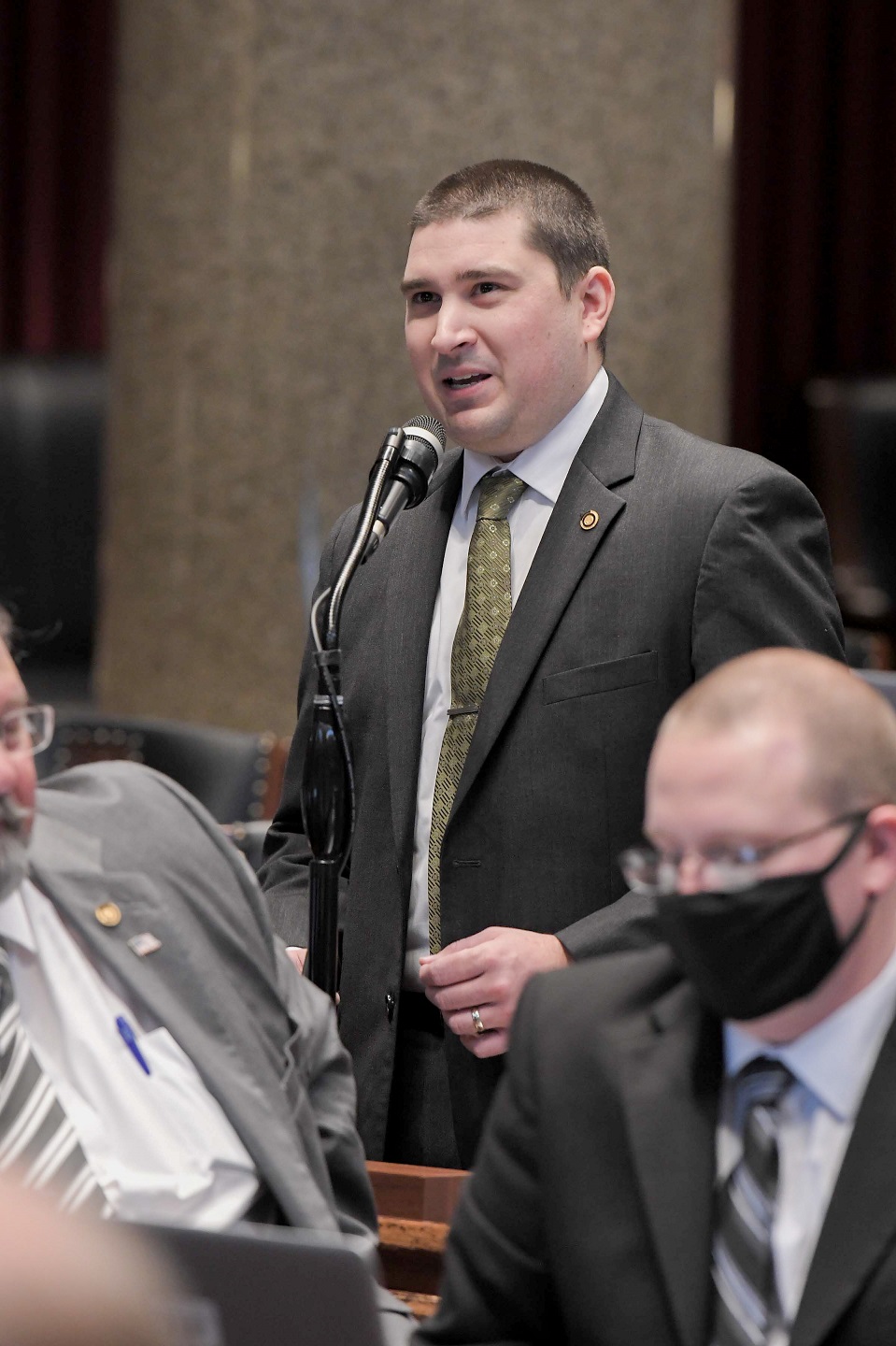
Civil asset forfeiture, “allows the government to take your private property without compensation and without the need to convict you or even charge you with a crime,” Representative Tony Lovasco (R-O’Fallon) told the House Committee on General Laws.
“Now you might think that this is a ridiculous process that we wouldn’t allow here in Missouri, and you’d mostly be right,” Lovasco continues, but he says there’s a hitch. While Missouri law doesn’t allow for civil asset forfeiture without a conviction he said local prosecutors are getting around it through the federal equitable sharing program.
He said the federal program also allows 80-percent of the proceeds stemming from seized assets to go to the law enforcement agencies who seized them, “which creates an unfortunate, perverse incentive to be very, very aggressive at actually filing these cases.”
Lovasco’s proposal, House Bill 1613, would block Missouri law enforcement and prosecutors from transferring seized property to federal authorities. It would also stipulate that federal authorities working with authorities in Missouri must give responsibility for seized property to a state entity.
The bill would apply to seizures including less than $100,000 in U.S. currency. Lovasco explained this was a compromise with law enforcement, who told him that most cases involving that amount of money or more are tied to drug trafficking. He said he doesn’t like this limit but it will make the bill more appealing to some lawmakers.
The plan has bipartisan appeal including from Peter Merideth (St. Louis), the committee’s top Democrat. He told Lovasco he strongly agrees with the proposal but he also doesn’t like that $100,000 cap.
Lovasco said nationwide, the median amount of money that has been seized by authorities is less than $1,300. In Missouri the number is higher, but he argues that in most cases money has been seized from people who aren’t involved in crime at all.
He showed his colleagues a blank Uniform Vehicle Stop Report which includes check boxes for listing contraband that is discovered.
Reverend Darryl Gray of St. Louis told the committee civil asset forfeiture reform is important in the African American communities of the state.
The only opposition to the bill voiced in the hearing came from St. Charles County. Lobbying on behalf of the County, Michael Gibbons said the county’s prosecutors and others believe such asset forfeiture is an effective tool in fighting drug trafficking. He maintains it is done in St. Charles County without abuses described by Lovasco and other backers.
The committee has not voted on the legislation.
Bipartisan effort seeks best way to help Missourians who owe for unemployment overpayments
One week after hearing from the Department of Labor about the state’s efforts to seek repayment of erroneous unemployment payments from struggling Missourians, a bipartisan slate of House members is debating the best way to provide relief.
The Special Committee on Government Oversight has heard that of roughly $150-million in overpayments, only a small portion – roughly a quarter or less – came from the state’s unemployment trust. State statute requires the Department to get that paid back.
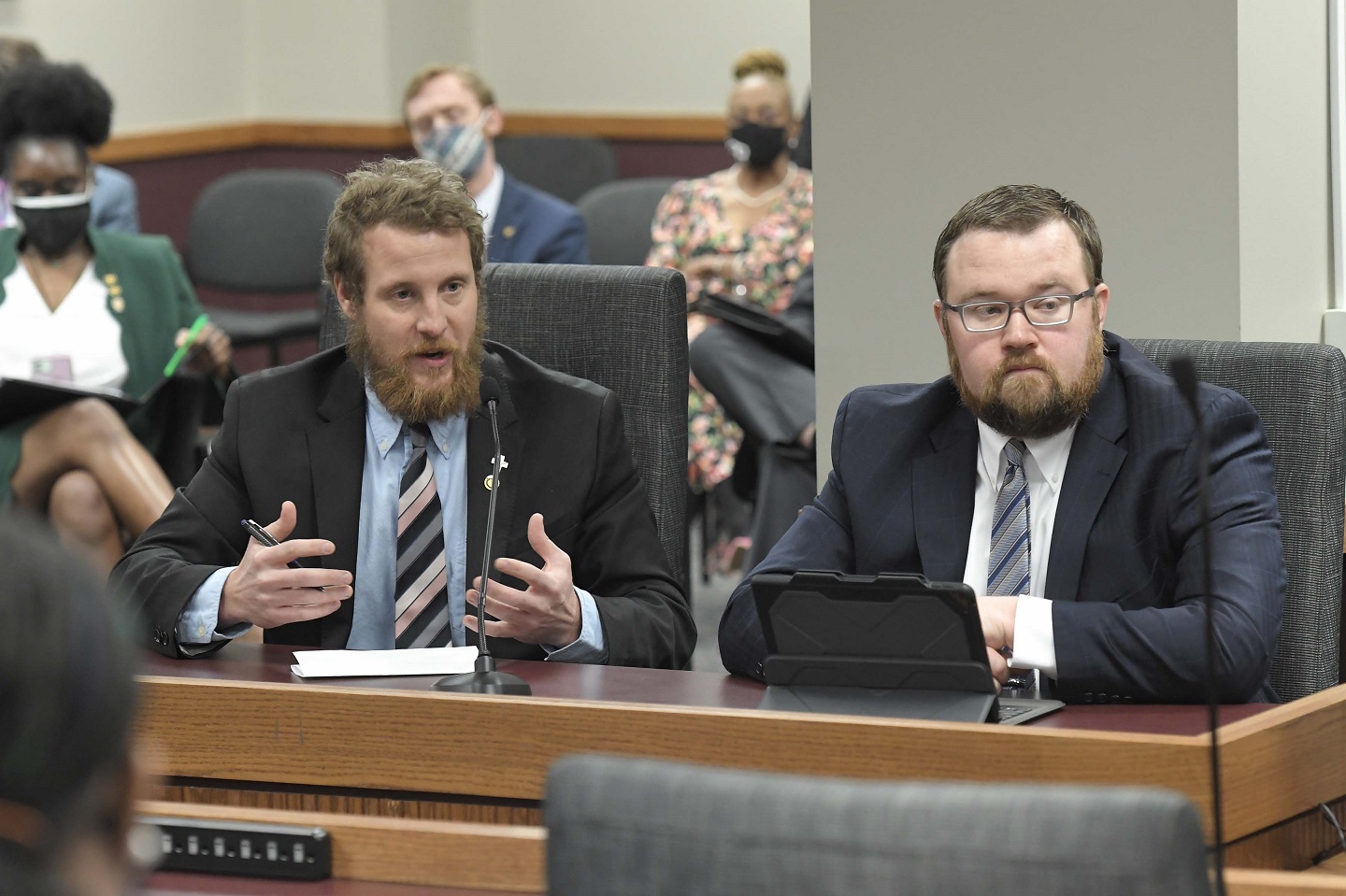
The larger portion comes from federal covid relief, the repayment of which the federal government has said states can choose to waive. Missouri Governor Mike Parson (R) has told his Department he wants it to be paid back.
The committee held a hearing on six bills – three filed by Republicans and three by Democrats – and a resolution filed by a Democrat, to deal with the issue.
The big question before lawmakers is whether to require that Missourians pay back overpayments out of the state fund. Committee members from both parties say they would like to waive all repayment, but some are questioning whether that can be done. They are unanimous about finding a way to waive the federal repayments, but some think the state portion might have to be recouped.
Shell Knob Republican Scott Cupps said a priority for the Department is to maintain the integrity of the state’s unemployment trust. His bill is one of those that would waive repayment of federal funds, but require Missourians to pay back state overpayments.
Cupps, who sits on the House Budget Committee, is one of those concerned that to waive the repayment of state benefits, the state would have to replenish the fund. This could come from other core budget functions, such as schools or transportation.
St. Louis Democrat Peter Merideth, also a Budget Committee member and sponsor of the resolution, noted that Governor Parson has proposed putting $500-million in federal CARES Act relief funds into the state’s unemployment trust. He suggests that would be a way to waive repayment of state overpayments while maintaining the fund.

Cupps and other Republicans said they would consider that option.
“The main thing that I talked to the Department about was maintaining the integrity of the trust,” said Cupps. “If it’s already been discussed that we were gonna throw some CARES Act money in there … it is something that could be a tool in the toolbox … it’s something we maybe should look at.”
Five of the six bills filed are largely the same. Committee Chairman Jered Taylor (R-Republic), the sponsor of one of them, said his intention is to pare them down into one bill and to have the committee vote next week on that and the resolution.
The legislation dealing with unemployment overpayments includes: House Bill 1085 (Taylor), House Bill 1083 (J. Eggleston – R, Maysville), House Bill 1050 (Cupps), House Bill 1036 (LaKeySha Bosley – D, St. Louis), House Bill 1035 (Doug Clemens – D, St. Ann), House Bill 873 (Ian Mackey, D-St. Louis), and House Concurrent Resolution 30 (Merideth).
Earlier story: House Members Denounce State’s Seeking Payback of Unemployment Benefits
House members denounce state’s seeking payback of unemployment benefits
House members from both parties are not happy that Missourians are being asked to pay back unemployment assistance they received in error through no fault of their own.
Department of Labor Director Anna Hui told the Special Committee on Government Oversight overpayments are “kind of built into” the unemployment system. The Department is expected to make an eligibility determination and get a payment out to an applicant within 14 days, generally based solely on information provided by the applicant. As additional information comes in, often from the applicant’s current or past employers, it could prove he or she was not eligible.
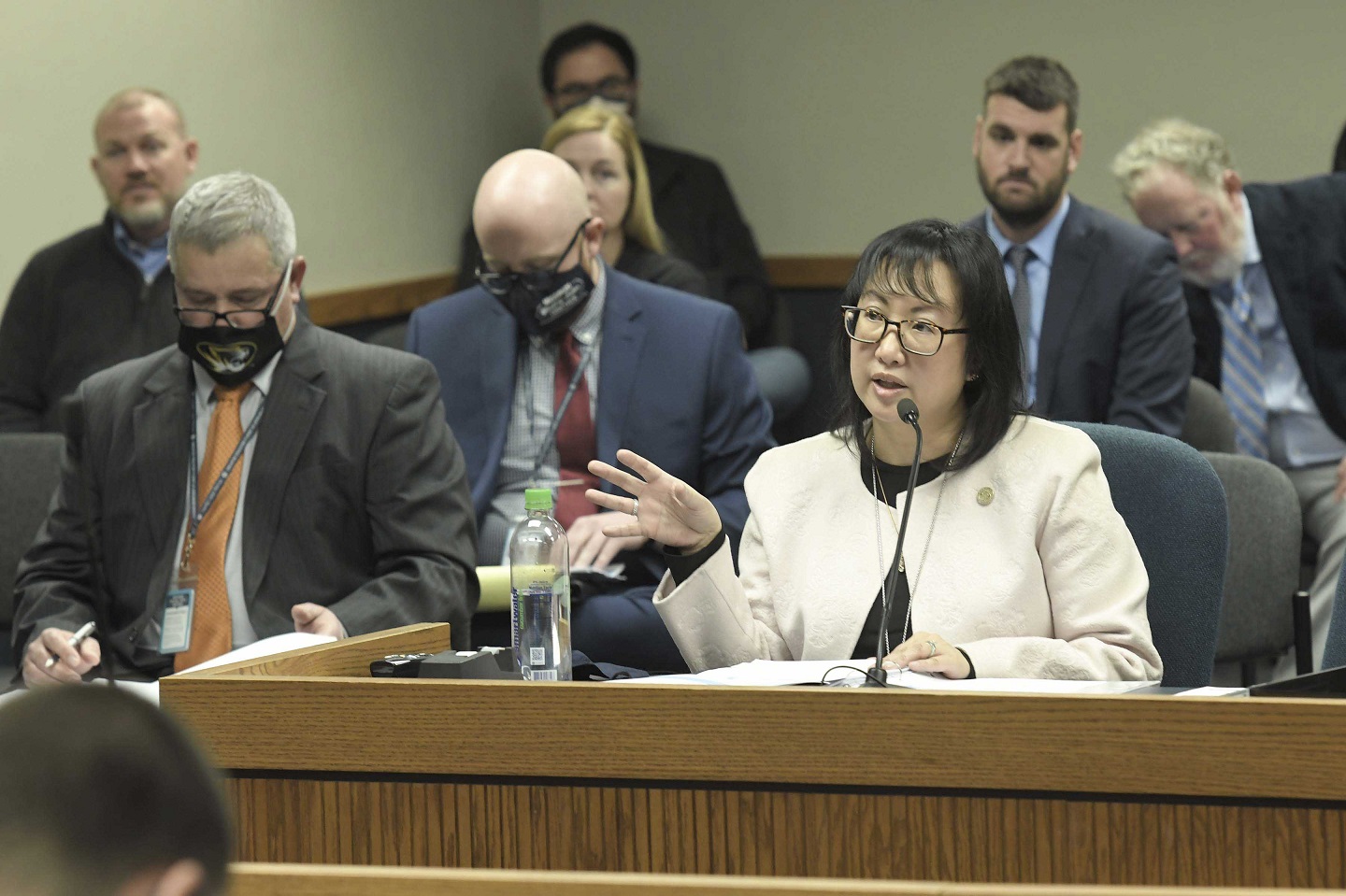
She said for 2020 that amounted to about $150-million in benefits that the Department paid out and now wants back.
Hui told the committee Governor Mike Parson (R) has made clear that he wants the Department to seek collection of those overpayments, viewing them as taxpayer dollars that went to ineligible individuals.
Several legislators said they have heard from constituents who have been asked to pay back thousands of dollars in state or federal relief, sometimes months after they received it. One constituent was asked to repay about $23,000.
“You’re going to be hard-pressed to find a more fiscally conservative person in here than me, but I think we screwed up as a state government, to ask folks [for that money] back this late in the game,” said Representative J. Eggleston (R-Maysville).
St. Ann representative Doug Clemens (D) said for Missouri to ask people already struggling financially due to covid to pay back thousands of dollars is wrong.
“Need I remind you of our median income in this state? Most people in my district make $26,000 a year, and you’re asking for $11,000 payback?” said Clemens. “We’re talking about keeping Missouri’s economy going. We’re talking about equity and conscience … [It’s] taxpayers’ money, it’s these people’s money, and frankly we’re in a crisis. They need to keep it.
Representatives, including Raychel Proudie (D-Ferguson), said the reasons given to individuals for their ineligibility were not always clear. She read a letter the Department sent to one of her constituents telling them they had to repay for a “miscellaneous reason.” Proudie called that “unacceptable.”
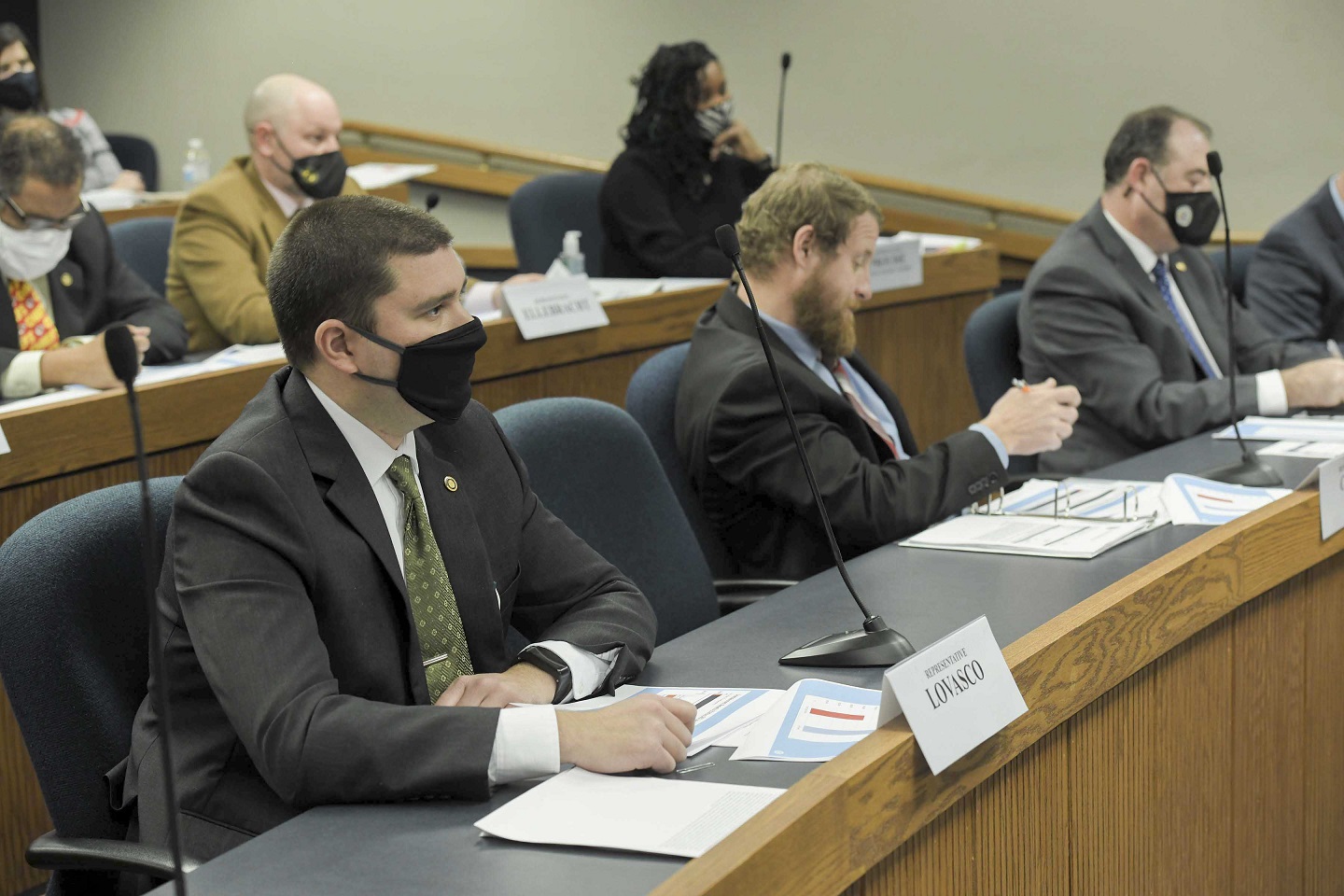
Federal directives have given states the option not to require repayment of assistance from the federal government, which makes up the majority of the $150-million the Department overpaid. Hui explained that Missouri is choosing to seek repayment of federal relief.
Proudie thinks the state shouldn’t be expending its resources to pull money from Missouri’s economy just to send it back to the federal government, and Representative Scott Cupps (R-Shell Knob) agrees.
“It may be as low as only $30-million of it’s from the [state] trust and $120-million of it is federal funds … you are not going to catch Scott Cupps in favor of rounding up money out of Missouri’s economy and sending it to Nancy Pelosi and Joe Biden in Washington D.C.” said Cupps. “The feds are literally telling us, ‘Hey, forgive it. Forgive it.’”
The Department is required by state statute to collect overpayments out of the state fund.
Dan Thacker represents a union including about 500 school bus drivers and monitors. He said many of them make salaries that would put them near the poverty level, yet roughly 400 are being asked to pay back thousands of dollars.
St. Joseph Republican Bill Falkner said any legislative action will have to balance the waiving of repayment by Missourians with protecting businesses, as some of these overpayments are charged to them.
Committee members also spoke directly to Missourians during the hearing. Cupps said the repayment situation is adding to already heightened stress for struggling Missourians. He wants them to know he and other legislators are paying attention, and are looking for a solution.
“There’s somebody that could get a letter in the mail that could say that they owe the state $7,200 back, and there could be divorces because of this,” said Cupps. “I want people to know this: do not do anything dumb because the state has sent you a letter that says you owe them money. Don’t do it. If you’re stressed out about it stop being stressed.”
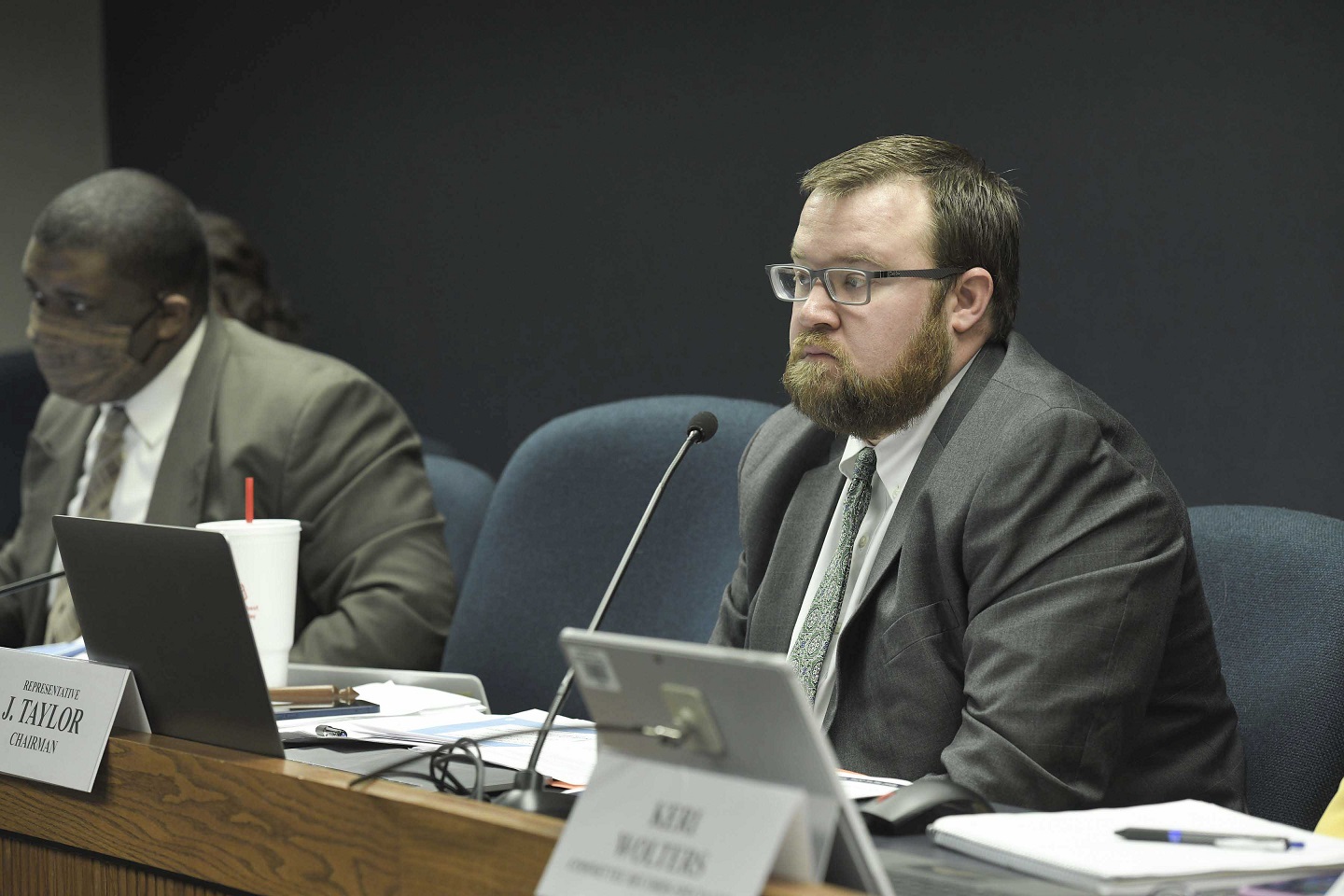
Liberty representative Mark Ellebracht (D) asked Hui whether it makes financial sense for Missouri to seek these repayments.
Hui told the committee that Missouri is on pace to need a loan to support the state’s unemployment trust, likely by around June. She did not offer a projection of how great that loan might be. She said this could cause employers to have to pay more, as that loan is repaid.
Witnesses and lawmakers alike suggested that repayment decisions have seemed arbitrary and inconsistent, with some people being ordered to pay back only federal funds, some to pay back only state funds, and some told to pay everything or nothing.
Three Democrats have filed bills to address unemployment relief overpayments: Clemens, LaKeySha Bosley (St. Louis), and Peter Merideth (St. Louis). The committee’s chairman, Jered Taylor (R-Republic) and Representative Cupps are developing proposals.
Missouri House passes 5 bills in special session called to address crime
The Missouri House has given initial approval to five bills related to crime issues in Missouri. The bills were filed in a special session of the legislature called by Governor Mike Parson (R).

Republicans say the legislation will help address violent crime in a year when Kansas City is on pace to set a new record for the annual number of homicides, and St. Louis is in the midst of a wave of murders and other violence. Democrats decried the legislation as accomplishing nothing and said the special session was called only for political reasons.
House Bill 66 would create a fund to pay for law enforcement agencies to protect witnesses or potential witnesses and their immediate families during an investigation or ahead of a trial.
St. Louis City representative Peter Merideth (D) said the bill would be meaningless because there would be no money in the fund until it is appropriated in budget legislation.
“If we really believed this was an emergency wouldn’t we be funding it right now?” asked Merideth.
Bill sponsor Jonathan Patterson (R-Lees Summit) said his bill will create the program and funding can come later, as is usually the case with newly created state programs.
“I trust the mayors of our state. They say it’s an emergency. I trust the law enforcement in our state. They say it’s an emergency,” said Patterson. “We could have funded it [during the special session]. You’d have to ask yourself, ‘does that fit within [the governor’s call of topics to be addressed in this special session]?’ I don’t know.”

Merideth said he would still support the bill, but also expressed concern that the offer of state money to pay for a potential witness’ room and board could be used to incent false testimony and lead to wrongful convictions.
The House voted 147-3 to send HB 66 to the Senate.
House Bill 46, sponsored by Representative Ron Hicks (R-Dardenne Prarie), would temporarily lift the requirement that St. Louis Police officers, EMS personnel, and firefighters live in the City of St. Louis. The residency requirement would be reinstated after September 1, 2023.
“Out of all the things in the governor’s call this is the one really good thing that will immediately improve the conditions of [St. Louis’] crime problem,” said Representative Justin Hill (R-Lake St. Louis), a former law enforcement officer and undercover detective. “Men and women in blue want to to work in the city. Right now they don’t feel empowered enough by their city to stay there.”
St. Louis area Democrats say the bill infringes on local control because St. Louis residents are set to vote on whether to remove the residency requirement in November.
“This comes up about every eight years in our city. It has never passed,” said St. Louis representative Wiley Price (D).
The House passed HB 46 117-35.
House Bill 11 would increase the penalty for endangering the welfare of a child from a misdemeanor to a first-degree felony. Bill sponsor Nick Schroer (R-O’Fallon) said criminals are taking advantage of juveniles by giving them guns and encouraging them to participate in violent crime.
The House passed HB 11, 117-33.
House Bill 16, also sponsored by Schroer, would define the unlawful transfer of a weapon to a minor as the lending or sale of a firearm to a minor for the purpose of interfering with or avoiding an arrest or investigation. It would change current law to allow such transfers to be a felony even if done with parental permission.

“It’s very important that we focus on these adults … that are victimizing our youth. Sometimes it’s resulting in their death, sometimes it’s resulting in them going into the juvenile justice system,” said Schroer. “Amending this law pursuant to the conversations we’ve had across the state it’s going to lead to a decrease in crime.”
St. Louis representative Rasheen Aldridge (D) said those bills will not reduce crime and won’t help his city.
HB 16 was sent to the Senate with a 103-45 vote.
The House also approved 133-11 House Bill 2, sponsored by Representative Barry Hovis (R-Whitewater), which aims to clarify current law on the admissibility of witness statements when a witness has been tampered with or intimidated. If a court finds a defendant tried to keep a witness from testifying and the witness failed to appear, an otherwise inadmissible statement from that witness could be allowed into evidence.
All of these except for HB 16 were passed with a clause that would make them effective immediately upon being signed by the governor.
House gives initial passage to changes to Missouri medical marijuana provisions
The Missouri House has given initial approval to a bill addressing issues with implementing a medical marijuana industry approved by voters in 2018. This comes as its Special Oversight Committee continues to explore problems in the issuing of cultivation licenses.
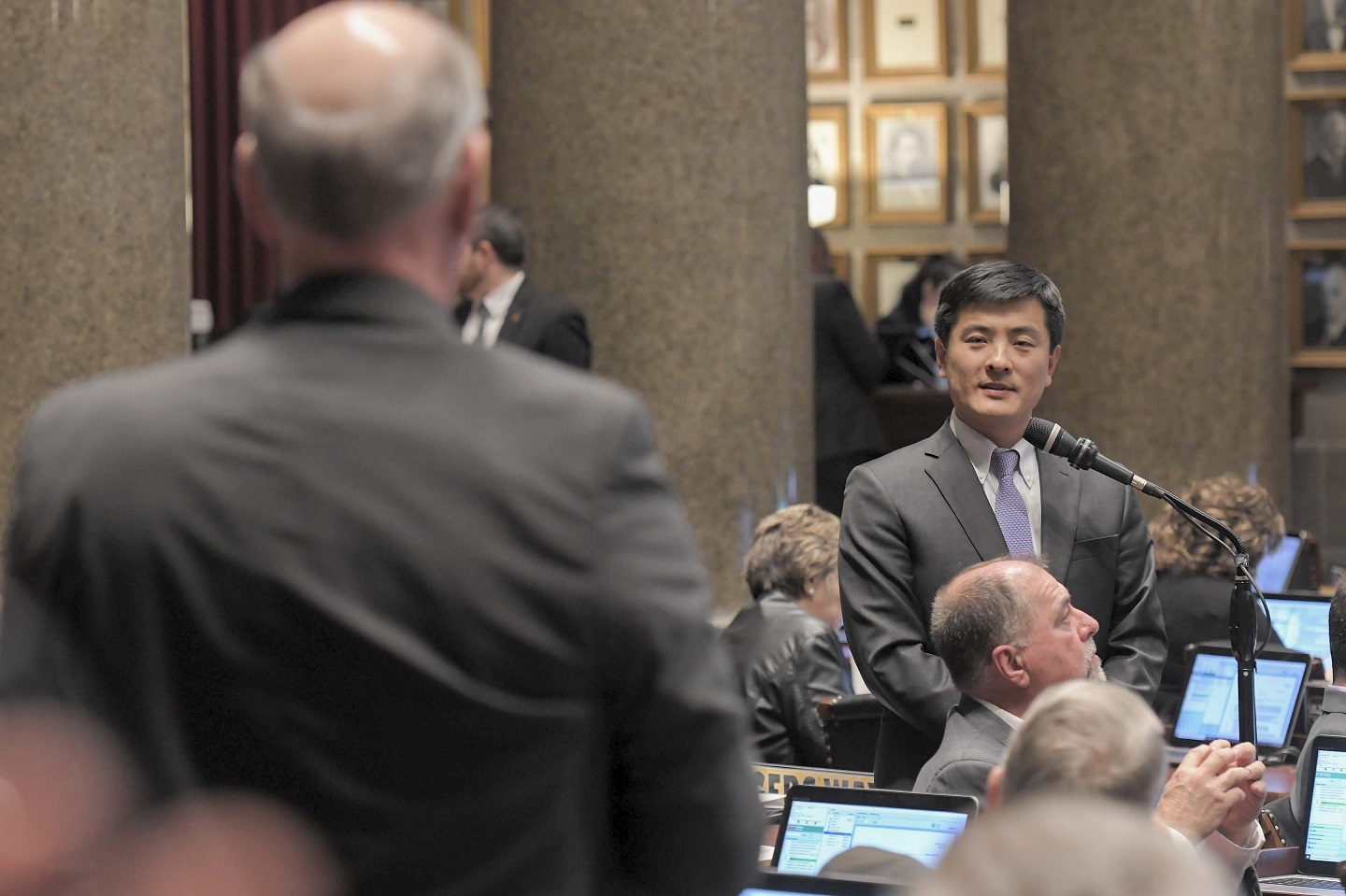
House Bill 1896 would give the Department of Health and Senior Services authority to review criminal background checks to ensure no workers in the medical marijuana industry have committed a disqualifying felony criminal offense. Article 14 of the Missouri Constitution, passed in 2018 by Missouri voters, includes the authority for DHSS to conduct criminal background checks, but the FBI does not share that information with non-law enforcement entities.
HB 1896 would give DHSS statutory authority to satisfy the FBI’s concerns. It would also make it a Class-E felony for a state agency to share data about medical marijuana card applicants with the federal government.
The House on Thursday added a provision to the bill that would require a medical marijuana card applicant to meet in-person with a Missouri doctor in order to be certified.
That piece was proposed by Representative Jonathan Patterson (R), a Lee’s Summit surgeon, who said it would strengthen the fledgling program.
Some lawmakers opposed Patterson’s amendment, saying it took a narrowly focused bill to fix a problem holding up the system, and added roadblocks to some potential medical marijuana patients.
“The Department testified to us the other day that the ‘North Star’ of Amendment 2 and the ‘North Star’ of their implementation of this was patient access, and all I see in here is a limitation on the physician I can go to,” said Representative Peter Merideth (D-St. Louis).
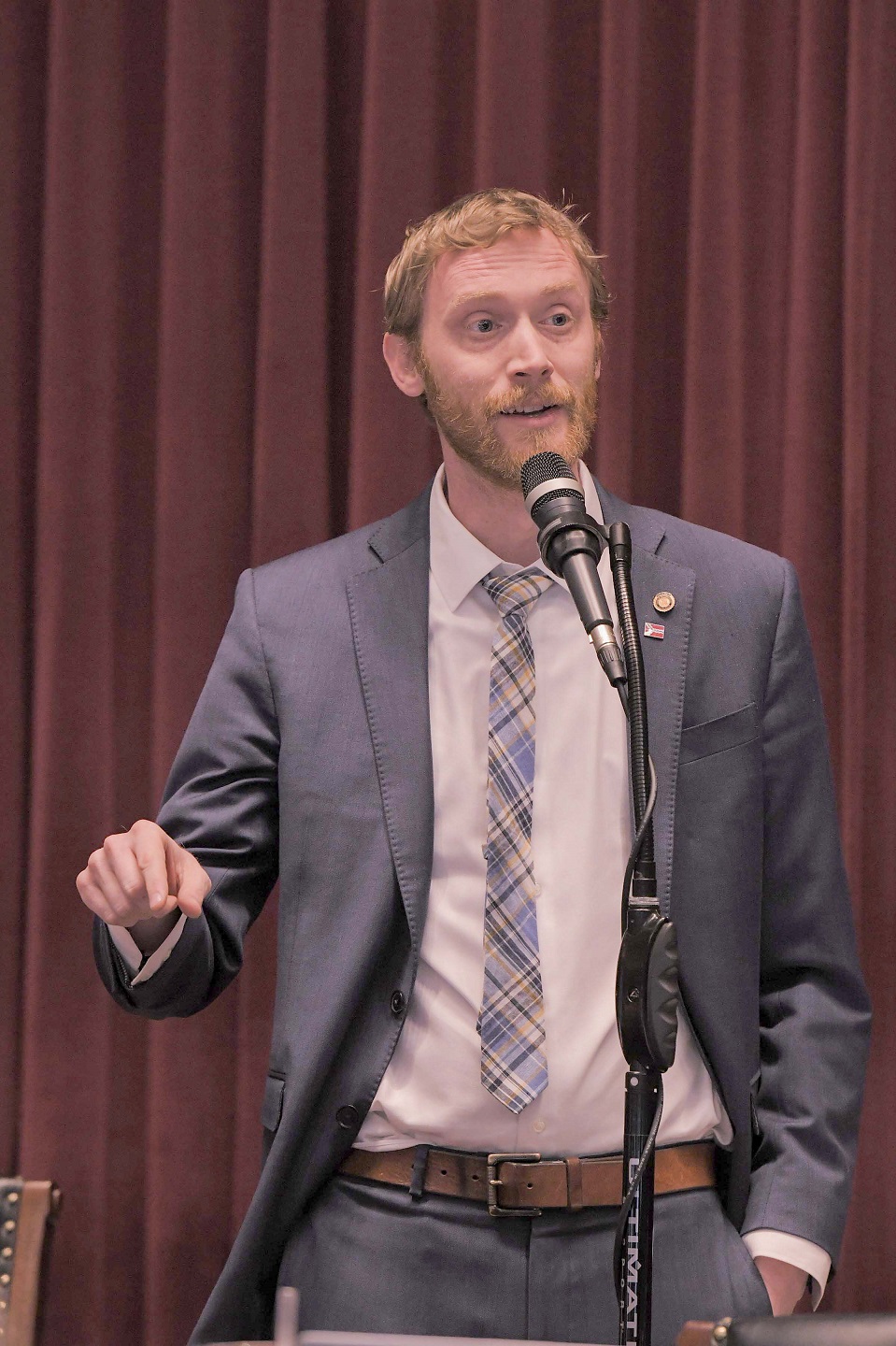
Merideth is also critical of Patterson’s amendment having first appeared on the House floor and not being the subject of a committee hearing.
“When people passed Amendment 2 do you think they had in mind an online doctor from some other country or another state?” Patterson asked.
“I think we should ask them,” Merideth responded. “That’s the point of a public hearing on something like this so that they can come in and say, ‘Here’s how it impacts me,’ so I can hear from a doctor, so I can hear from a patient.”
O’Fallon attorney, Representative Nick Schroer (R), said he believes Patterson’s amendment will lead to court challenges.
“This is going to prohibit the actual implementation of what the voters intended and what the voters requested,” said Schroer.
Other lawmakers said requiring certification from only Missouri doctors would be a burden to those who live near the borders and visit doctors from neighboring states.
Patterson argued his amendment would protect patients.
The House also added a provision to require DHSS employees involved in medical marijuana regulation to disclose any “actual or perceived” conflicts of interest to the Department.
Another favorable vote would send the legislation to the Senate.
The House Special Committee on Government Oversight has held several hearings into apparent inconsistencies in the approval of licenses to cultivate marijuana for medical use in the state. More such hearings are expected as early as next week.
Second House bill sent to Senate would increase penalties for trafficking fentanyl
The second bill the Missouri House has sent to the Senate would increase penalties for trafficking a dangerous drug, the use of which can easily result in overdoses. Opponents worry the change will cast too broad a net, putting more users in prison for long terms.
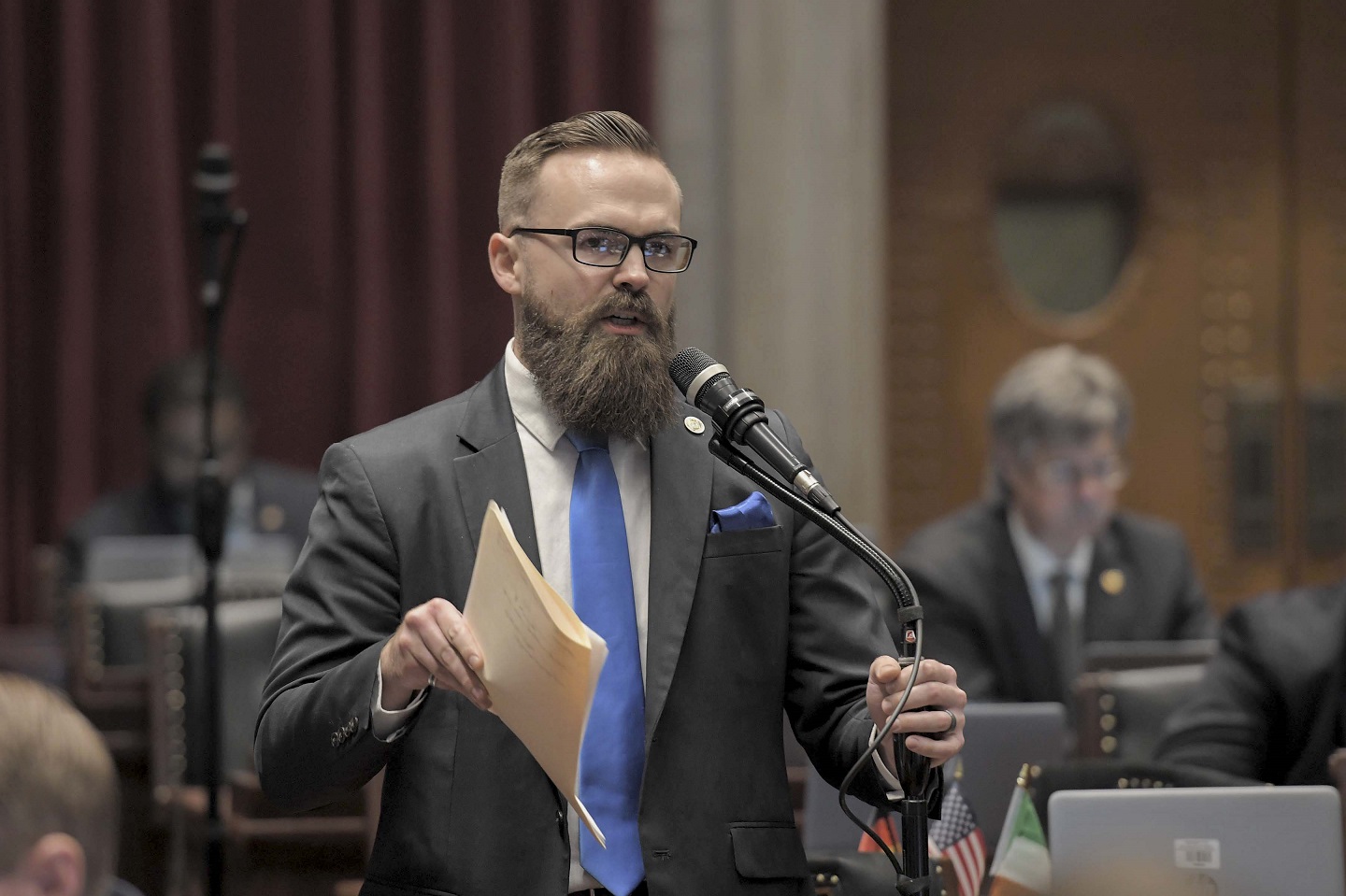
The House voted to making it a class-B felony to knowingly distribute, make, or attempt to distribute or make, more than 10 milligrams of fentanyl or its derivatives. This would carry a penalty of five to 15 years in prison. Making or distributing 20 or more milligrams would be a class-A felony, carrying a sentence of 10 to 30 years in prison.
Law enforcement advocates have told lawmakers that fentanyl is 50 to 100 times more potent than morphine. It is being trafficked frequently in Missouri – particularly illegally made – and is often mixed with other drugs like heroin or cocaine, often resulting very easily in overdose deaths.
The sponsor of House Bill 1450, O’Fallon representative Nick Schroer (R), said fentanyl trafficking has continued to increase exponentially in the past year. He believes increased penalties will help law enforcement get to those who are making and selling fentanyl.
Representative Peter Merideth (D-St. Louis City) agrees that fentanyl is dangerous and efforts should be made to get it off the streets, but he does not believe the way to do that is by increasing penalties.
“For the last many decades now we’ve been pursuing a drug war where we try and lock people up for longer times thinking that’s going to help us deal with our drug problem, and it hasn’t. It hasn’t at all,” said Merideth. “What we’re really doing is also pulling people out of their communities, out of their families and putting them in prison for extremely long sentences for drugs.”
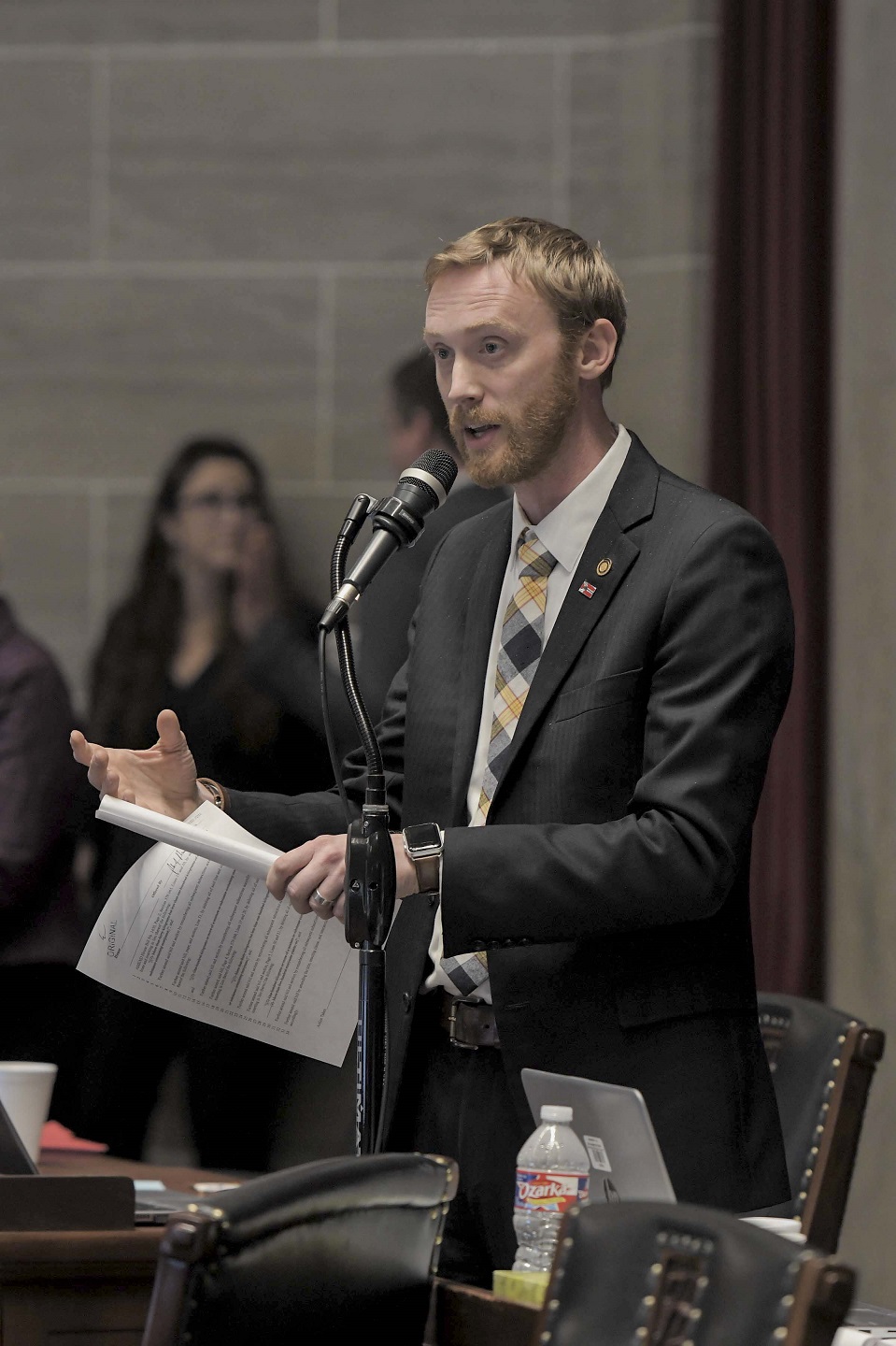
Florissant representative Alan Green (D) said the longer sentences HB 1450 proposes fly in the face of recent years’ efforts toward criminal justice reform.
Schroer argues that criminal justice reform does not mean being “weak on crime, it means being smart on crime.” He said fentanyl has not been addressed in Missouri and his proposal would do that.
“I agree with the governor … when he indicated that only the most violent of offenders, only society’s most harmful, need to be in our prisons, and I think anybody who’s going to bring these deadly drugs – that even [an amount the size of] a granule of salt will kill several people – those people need to be addressed,” said Schroer. “If we lock that person up, if they just take a plea deal and are locked away we can’t get to the actual manufacturers, this will continue. We’re not fixing the issue. This is a tool which we have seen across this nation is starting to work.”
HB 1450 would also increase the penalties for trafficking one gram or more of Rohypnol or any amount of GHB, both of which are often used in sex crimes.
The House voted 122-33 to send the bill to the Senate for its consideration.
VIDEO: House Democrats highlight firearms legislation
Houses passes vehicle tax credit bill, answering call of special legislative session
The Missouri House has passed legislation aiming to allow people to keep getting multiple tax breaks when trading in more than one vehicle on a new one.

The chamber’s Republicans say the language of House Bill 1 will allow Missourians to keep doing what they’ve been doing and say it will help all consumers. Many House Democrats voted for the bill, though some in that caucus decried it as “corporate welfare” and said it was a topic unworthy of a special session.
The House voted today, 126-21, to send the bill to the Senate.
Governor Mike Parson (R) called a special session to coincide with today’s annual veto session to deal with the issue in response to a Missouri Supreme Court ruling in June. The Court said state law allows a tax break to be awarded only on one vehicle, when multiple vehicles are traded in toward a new one.
Sponsor Becky Ruth (R-Festus) said her bill will give much-needed tax relief to Missourians from all walks of life.
Shrewsbury Democrat Sarah Unsicker agreed the bill will affect some individuals, but said it will also let corporations keep from paying their “fair share.”
“There are approximately 14-thousand vehicle sales estimated to be impacted by this bill. The Department of Revenue cannot estimate how much this tax credit costs the state or how many vehicles are commercial sales,” said Unsicker. “If we make this just about individuals like those the sponsor referenced I would support this bill. However, I believe this bill is, to a substantial extent, corporate welfare, and therefore I will be voting against it.”
An amendment that would have made the tax credit available only to individuals and businesses of 12 or fewer employees was voted down.
Democrats argued that the tax credit issue was not pressing and did not merit the calling of a special session.
“This Supreme Court Decision didn’t just help us figure out, this summer, that this was an issue. Since 2008 there have been 17 administrative hearings to ask this question of whether folks are allowed to trade in multiple cars to offset the car they buy. In all 17 administrative hearings they found they couldn’t,” said St. Louis representative Peter Merideth (D). “Regular people, regular folks were being told they couldn’t claim this credit, but we didn’t consider it an emergency.”

Ruth argued that the law needed to be clarified, and addressing it in a special session makes sure no eligible vehicle trades will happen without the award of tax credits, thanks to a window of 180 days before or after a new vehicle purchase in which to offset the owed sales tax.
“If you’re one of those people since the Supreme Court decision on June 25, 2019, that’s trying to figure this out … if we do this now, those folks are still going to be able to take advantage of that credit. If we wait and we do this next session they’re not going to be able to take advantage of that credit,” said Ruth. “The people that come before them, the people that come after them, will, and this could possibly set our state up for lawsuits.”
Ruth calls the legislation is a way to keep Missouri law consistent.
“The problem that I have with that is the ‘business as usual’ that we’ve been doing has been established by the Supreme Court to be against the law,” said Kansas City representative Ingrid Burnett (D). “Rather than take to task the [Department of Revenue], who has been breaking the law, we have decided to call a special session to come here to change the law.”
House Democrats said lawmakers’ time would have been better spent debating changes to gun laws, and several among them filed proposals to that end.
They also wanted to see attention given to Medicaid enrollment. House Minority Leader Crystal Quade (D-Springfield) said Missourians with life-threatening medical conditions are losing coverage.
House Speaker Elijah Haahr (R-Springfield) said any time a special session is called people will point to other issues it could have dealt with.
Haahr said he has asked members of his caucus to research what some other cities in the nation have done to reduce violent crime, with the aim of preparing a legislative proposal for the regular session that begins in January.
As for Medicaid enrollment, Haahr said decreases in enrollment are due to factors including an improved economy and changes in 2016 to the Affordable Care Act (ACA); and a review of Medicaid eligibility that has seen ineligible recipients being taken off the program’s rolls. He said if a need for hearings on the issue is presented to him, he will call for them.
Missouri House votes to block public contracts with companies that boycott Israel
The Missouri House has voted to bar the state and its local governments from entering into contracts with companies that are participating in a movement to boycott Israel.
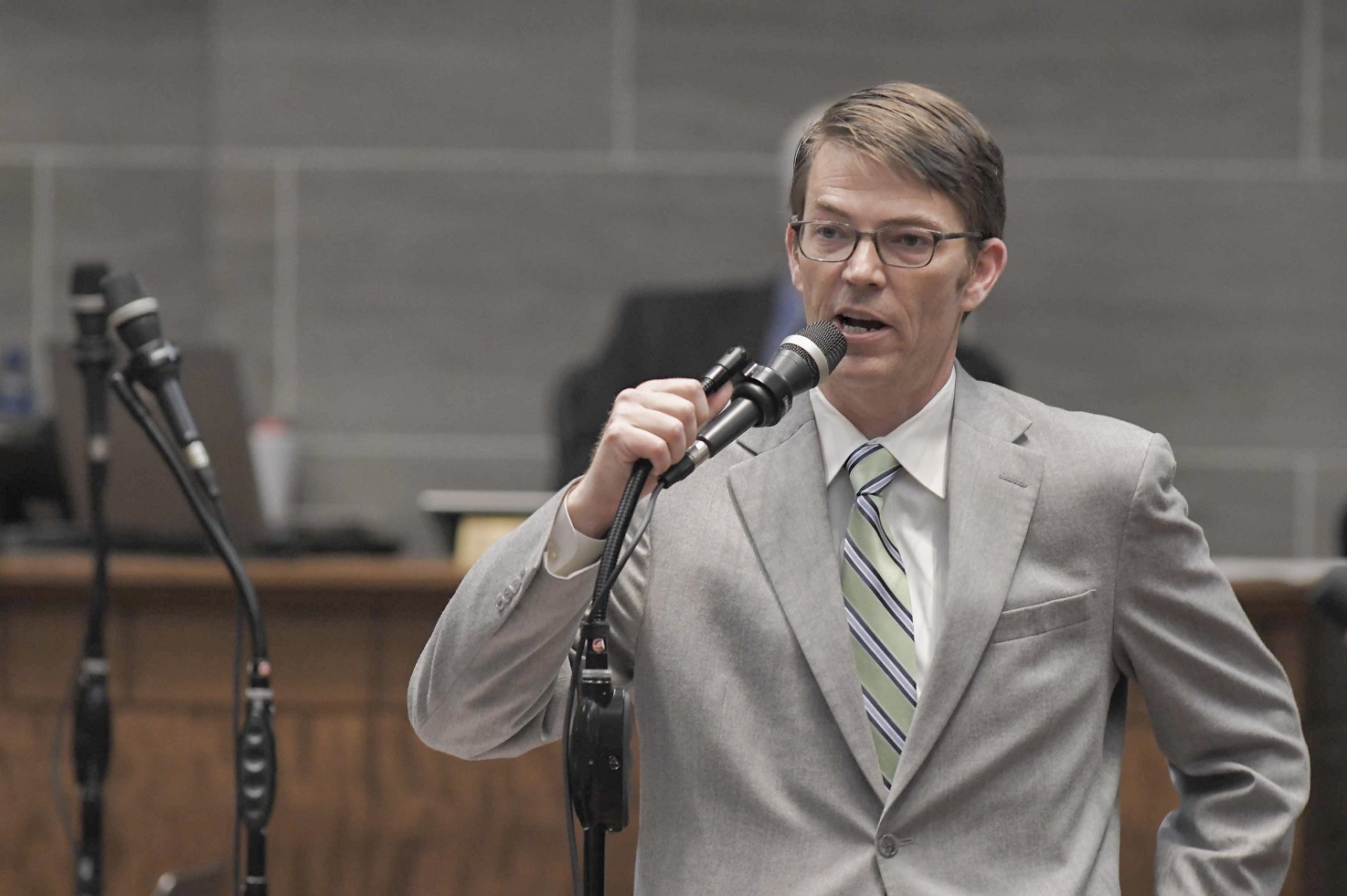
House Bill 2179 would prevent any public entity in Missouri from doing business with any such company except those owned by a single individual. The bill is sponsored by House Speaker Todd Richardson (R-Poplar Bluff) and was carried on the House Floor by Speaker Pro Tem Elijah Haahr (R-Springfield).
Haahr said the legislature should pass HB 2179 because of Missouri’s economic ties to Israel.
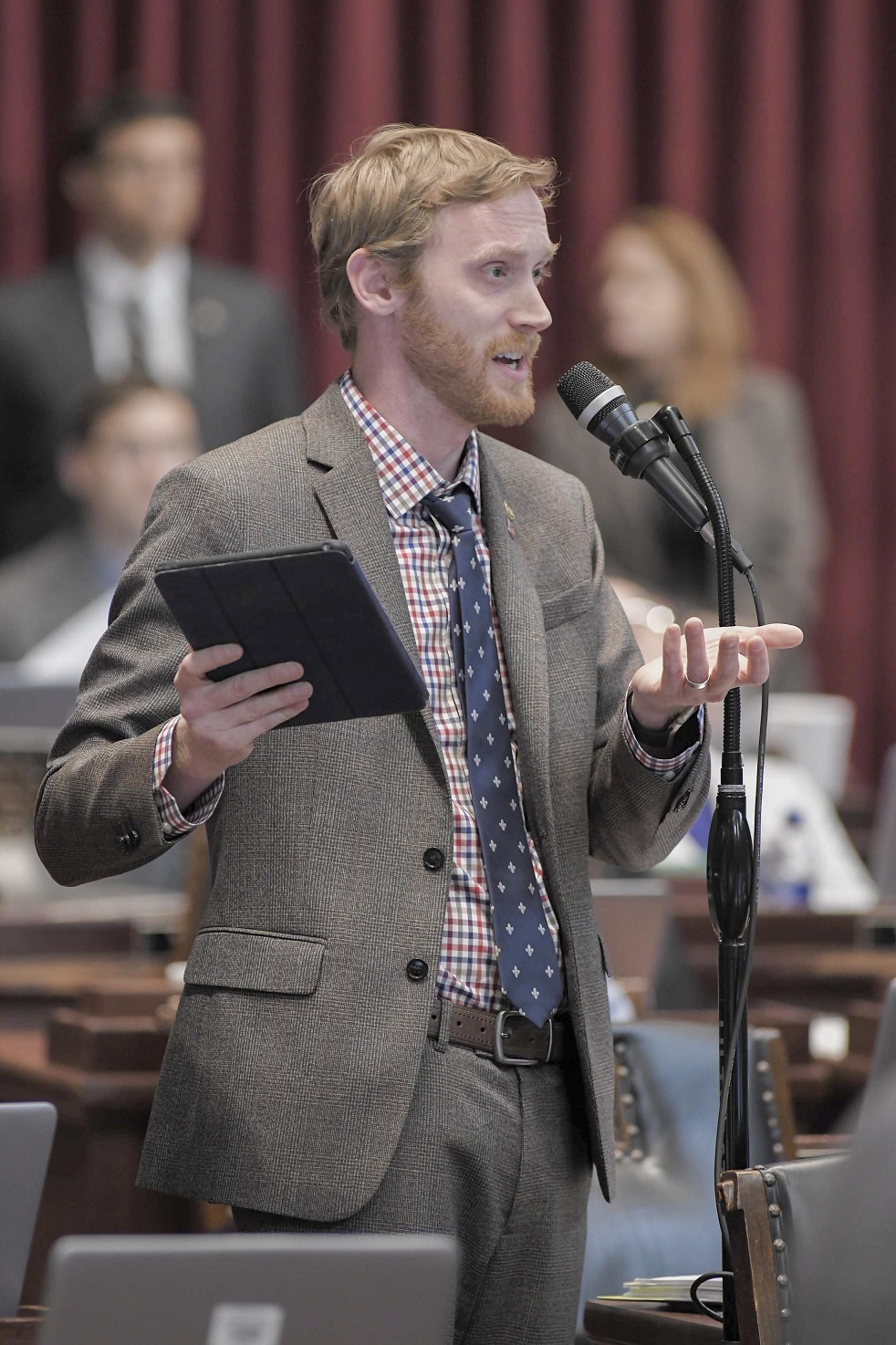
St. Louis Democrat Bruce Franks, Junior, said many Missourians won’t like that the bill would discourage companies from boycotting Israel even if those companies’ leaders hold strong or personal beliefs about that country’s policies.
Some Democrats argue HB 2179 would be unconstitutional, saying it would infringe on free speech. St. Louis representative Peter Merideth (D) said the ruling by the Kansas Supreme Court regarding a similar law in that state proves that point.
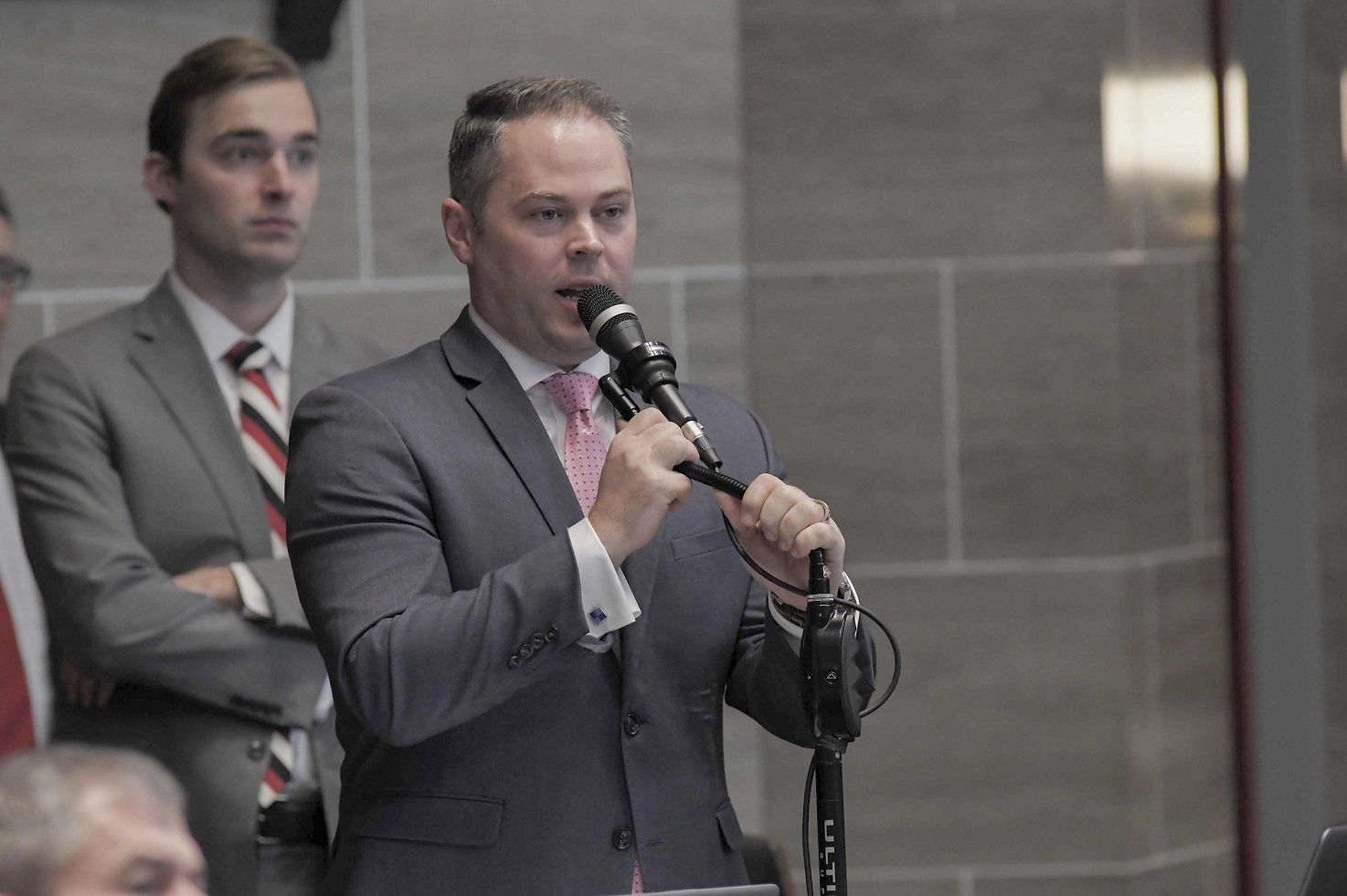
Speaker Richardson said the bill does not infringe on anyone’s right to free speech or on a corporation’s ability to boycott Israel, and said the Kansas ruling has no bearing on HB 2179 because what it proposes would not extend to individually-owned operations. Kansas’ law did extend to sole proprietorships and was challenged by one such entity.
“Can we stop using the Kansas decision as some sort of definitive precedent that this is unconstitutional?” asked Richardson. “I refer to it as the Kansas boogeyman: ‘This is like Kansas! This is like Kansas! This is like Kansas!’ We’re not Kansas, and I don’t want to have a law that’s overly broad here just like I don’t want to have tax policy in Missouri that’s exactly like Kansas, but using the straw man of saying everything we do out here is Kansas, therefore we can’t do it, is disingenuous on this bill because it’s not the same.”
The House voted 111-35 to send HB 2179 to the Senate.